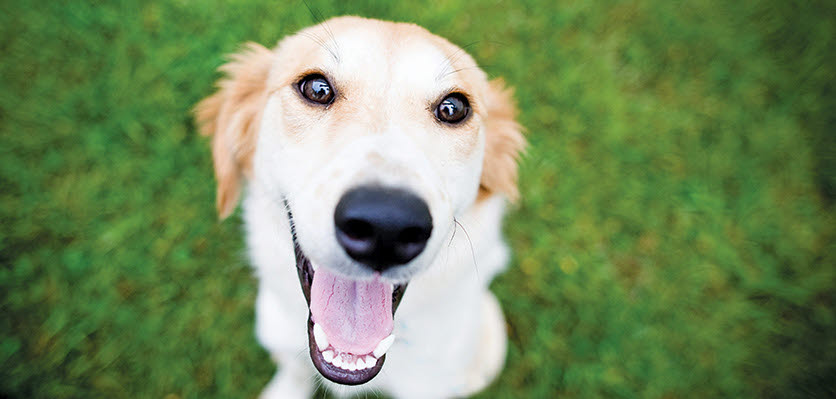
When it comes to dental disease in our pets, you don’t need to be an expert to realise that it really stinks! It is in fact, one of the most common problems seen in veterinary practice and not only is it painful for your pet, but the increased bacteria in the mouth can also be associated with other conditions such as kidney disease, heart disease and liver disease. The worst part is, many people are not even aware that their pet has a dental problem.
The good news is that there are plenty of things you can do to help care for your pet's teeth and always remember that your vet is the best person to ask when it comes to ensuring your pet has a healthy mouth.
Signs of dental disease:
- Smelly breath
- Build up of discoloured material on the teeth (accumulation of tartar)
- Bleeding or red gums (gingivitis)
- Drooling or dropping food from the mouth
- A loss of appetite or weight loss
What causes dental disease?
A lack of chewing sinew and muscle (something pets would do in the wild) allows plaque and tartar to build up around the teeth. Lots of bacteria appear around this tartar and this leads to inflammation and eventual loss of the attachments that hold the teeth in place.
What's the best treatment?
Dogs and cats with dental disease need a general anaesthetic to assess the teeth and clean thoroughly under the gum line. Teeth that are severely diseased and potentially painful are generally removed and this helps to prevent problems in the future.
If your veterinarian has recommended your pet has a dental procedure it is vital that you follow their advice.
Prevention is the key
When it comes to cat and dog dental care, prevention of dental disease is always better than trying to cure or reverse the condition.
Wet and soft food diets are notorious for allowing plaque and tartar to accumulate. It is vital that your pet is on a premium quality diet that helps to clean their teeth as they chew. Speak to your veterinarian for advice on the most appropriate diet for your pet.
Here are our top tips for dental care at home:
-
Make every mouthful count
Every mouthful your pet takes should be hard work! Your veterinarian will be able to recommend an excellent diet that is actually designed to clean the teeth as your pet chews. They can also advise you on the best cat and dog dental chews and the best treats when it comes to dental care. Not every dental chew on the market is entirely safe for your pet so it’s best to ask your vet for advice.
-
Brushing is best
Brushing your pet's teeth is considered a gold standard in-home care. There are pet toothbrushes that enable you to get into the hard to reach places. Keep in mind that it can take a few months for your pet to get used to the idea! Daily brushing is recommended (in an ideal world) however a couple of times a week is better than no brushing at all. If you are using a dental paste make sure it pet-friendly (human toothpaste is toxic to pets).
Your vet can show you how best to brush your pet's teeth – just ask them for a demonstration.
-
Are bones safe for dogs?
Bones can be an excellent way to help clean your pet’s teeth but there are risks involved. You need to be aware of these risks and always put steps in place to help prevent problems. Bones should always be raw and be fed under supervision. 20-30 minutes of chewing is usually enough to get the job done. Don’t allow your dog to get into the bone marrow as this can cause stomach upsets. Remember to never feed cooked bones. You should always discuss feeding bones with your veterinarian to ensure your pet is safe.
Your veterinarian is the best person to ask when it comes to caring for your pet’s teeth.
